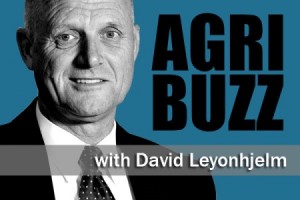Live cattle exports and foreign investment
November 12, 2014
The previous government’s sudden ban on live cattle exports destroyed a longstanding assumption by the Indonesians that Australia could be relied upon for its food security. Given our proximity and large cattle industry, they thought there was no risk they would ever run out of beef. The Indonesians are now demonstrating they don’t trust us by seeking to invest in cattle properties in Australia. Their thinking, fairly naturally, is that this will reduce the risk of being denied cattle in future. Quite frankly, I don’t blame them. Moreover, I hope they force both our farming industry and the government to face up to a couple of matters that they would rather avoid.
The first of these is the matter of foreign investment. The government is currently split between those who favour free trade and foreign investment, Treasurer Joe Hockey among them, and those who want it restricted, led by Nationals Barnaby Joyce and Fiona Nash and Liberal Bill Heffernan.
The other is the obligation imposed on live cattle exporters, known as Export Supply Chain Assurance System (ESCAS), to guarantee Australian animal welfare standards are maintained through to slaughter despite exported cattle being located in Indonesia and owned by Indonesians.
I previously discussed foreign investment in the context of the report of the Senate Standing Committee on Rural and Regional Affairs into grain handling, specifically Archer Daniels Midland’s (ADM) takeover offer for Graincorp, to which Senators Heffernan and Nash were chief contributors.
That report, relying on little more than bizarre conspiracy theories, decided foreign investment had the potential to “distort our capital market to the detriment of Australian farmers and Australia’s economy due to food security concerns”, and should be subject to scrutiny “to protect the public interest and the interests of grain growers”.
So now we have Indonesia proposing to purchase up to 1.5 million hectares of Australian cattle country in an attempt to increase its own food security, for which it requires a reliable supplier of beef. Australia’s food security, as it happens, is not even vaguely at risk.
While northern cattle producers have largely welcomed the proposal, which can be expected to inject some much needed confidence into the industry, new Agriculture Minister Barnaby Joyce has already indicated his opposition. I imagine Nash and Heffernan feel the same.
Indonesia is a large, very populous and mostly Islamic neighbour. No sensible person would want Australia to be anything other than a good neighbour. Moreover, Australia badly needs Indonesia’s cooperation if it is to stop the flow of unauthorised refugees arriving in boats.
For those opposed to its investment in cattle farms, awkward barely describes it.
So let’s consider the fears of those who oppose foreign investment. What is the worst that might happen?
Most likely, cattle running on Indonesian-owned properties in northern Australia would be shipped off to Indonesia for fattening or slaughter, much the same as they are now. There is probably not much chance they would be exported to another country or sent south for slaughter.
The properties would continue to employ Australian managers and station hands and purchase their goods and services in Australia. Foreign ownership does not come with a licence to import these.
Employees would continue to pay taxes and, assuming they made a profit (which many northern cattle properties do not currently), the property owners would pay Australian company tax.
If they tried to avoid tax by selling the cattle at below market price to their Indonesian counterparts (known as transfer pricing), the tax office would be all over them like a rash. It has heaps of experience at dealing with that kind of thing.
Would 1.5 million ha, capable of running around 50,000 to 100,000 head and turning off not much more than a third of these, crowd out other producers? Well, no. Indonesia needs at least 500,000 cattle each year and some suggest natural demand is 800,000.
Would it mean a risk that Australia might run short of beef? No again. Australia already exports almost two-thirds of the beef it produces, not counting cattle exported live.
Would it mean our capital markets were “distorted”?
If distortion means giving a minor boost to top end property values that enable a few struggling Australians to get out of debt, perhaps there should be more of it. An estimated 30 per cent of north Queensland and Northern Territory cattle properties are currently for sale.
And the big question is, would it be contrary to the public interest? That’s harder to know because nobody really knows what it means. You’d probably have to ask Senators Nash and Heffernan, or Barnaby Joyce, to know for sure.
But I suggest it is undoubtedly in the public interest. Here’s why.
First, it means Indonesia will not look to countries like Brazil or Argentina for live cattle, or relax its quarantine standards to allow boxed beef imports from India, as was widely feared in 2011 when our government slammed the door on exports. As demand for beef grows in Indonesia, Australian production will grow with it.
When a customer invests in its supplier, you can be pretty sure it doesn’t intend to take its business elsewhere.
Second, it will add to the common interests between Australia and Indonesia. We need Indonesia to have an interest in our country and to care what we think. We will need their goodwill in spades if the flow of boat people is to be stopped.
And finally, it might help prevent our government from getting too big for its boots. Applying our animal welfare standards to an Indonesian firm operating in Australia is one thing, but telling them what to do in their own country is another. I envisage some of the bossy arrogance inherent in ESCAS might be quietly wound back.
If buying some cattle farms helps the Indonesians to lose some of their well justified mistrust of us, I say let them. It’s in our national interest.
David Leyonhjelm has been an agribusiness consultant for 25 years and was recently elected to the Senate. He may be contacted at reclaimfreedom@gmail.com







